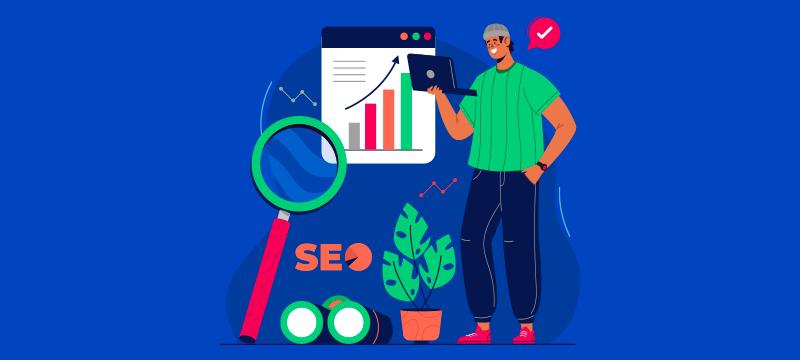If you are new to running a website or carrying out search engine optimisation (SEO), this post will run through some of the basic things you will need to know to help your website rank higher in search engine results and attract more visitors.
- SEO is an ongoing process
The first thing you need to know is that search engine optimisation isn’t something you do once and can forget about. If you want to give your website the best chance of ranking highly, it is a task you’ll need to keep working on for as long as you have your site. As search engines constantly tweak their ranking criteria, whenever they do, you’ll need to amend your SEO to accommodate those changes. You may also need to change tack if some of your strategies stop being effective, if you change your products and services or if your competitors begin to outrank you for your main keywords. - There are three types of SEO
Most people who are new to SEO think optimising a site is all about the use of keywords. However, search engines have around 200 ranking criteria and to rank well, you’ll need to work on three different areas of SEO.-
On-page SEO – This is carrying out keyword research and putting the most important keywords and phrases in the right part of each page, such as the title, meta description, subheadings and content.
-
On-site SEO – Also known as technical SEO, this covers a wide range of tasks, such as enabling your site to be crawled by search engines, ensuring it loads quickly, has easy navigation for users and is mobile friendly.
-
Off-site SEO: One of the hardest SEO outcomes to achieve, this requires you to create quality content that gets other leading websites in your niche to link to your pages. The quality of the links you get is far more important than the quantity. Links from a government website or renowned organisation are particularly helpful.
-
- Follow the guidelines
There are no shortcuts to SEO success and search engines offer clear guidelines not just about the best way to optimise your site but the way you should do it. In particular, there are rules about practices they will not accept, such as swapping backlinks or paying other websites to link to yours. If you fall foul of these rules and don’t follow best practice, your site might be penalised by the search engines. If this happens, they will block your site from appearing in their search results altogether and this may be a permanent move. As a result, you will get no visitors from Google or Bing and will have to rely entirely on advertising and other methods. - Study your competitors
If you want to rank well, one of the best things you can do is type in your chosen keyword and see which web pages appear on the first page of the search results. These are the pages that search engines think are the best for that search query and the ones that will get the vast majority of visitors.Study these pages carefully, looking at everything from how quickly they load, how they appear on mobile phones, their ease of navigation and how and where they use keywords on the page. While copying the pages word for word on your site won’t get you anywhere (except penalised), researching your competitors will help you know what does and doesn’t work well when it comes to optimising your own unique site.
- Ranking takes time
Don’t expect your SEO to have an immediate impact on your website’s ranking. It can take time for your updates to get crawled by search engines and get taken into account by their algorithms. This is especially true for new websites, where it can take several months to start rising up the rankings. Search engines want to see how your fledgling site works over time before shunting it to the top of the pack. - Use the right tools
Modern SEO is a complex task that requires ongoing input. Many website owners lack both the know-how and the time to do it well and consistently. Today, both website owners and SEO agencies rely on the use of advanced SEO tools that do much of the hard work for you. For beginners and advanced users alike, all-in-one SEO tools, like marketgoo, can provide you with a step-by-step SEO plan and carry out much of the work automatically, cutting the time it takes and making the process less technically complex.
Conclusion
Carrying out SEO is vital for higher search engine ranking and generating more visitors. Hopefully, this post will have covered some of the basic things you need to know about on-page, on-site and offsite SEO, as well as showing you that, with the right tools, the process can be much easier. For more information about marketgoo, visit our All-In-One SEO Tool page.



1 Comment
Is there any special techniques that can be used to optimize a wordpress blog on my server for SEO. One issue I see is no way to change the title tags on each page, where it seems to take the blog name for the home page.
I have several hundred 600+ inbound links.
I have pinged Technorati manually and used pingoat as well as pingomatic every time I add a new blog.
There is plenty of content, about 30 articles.
What else can I do? What else should I do to optimize my blog?